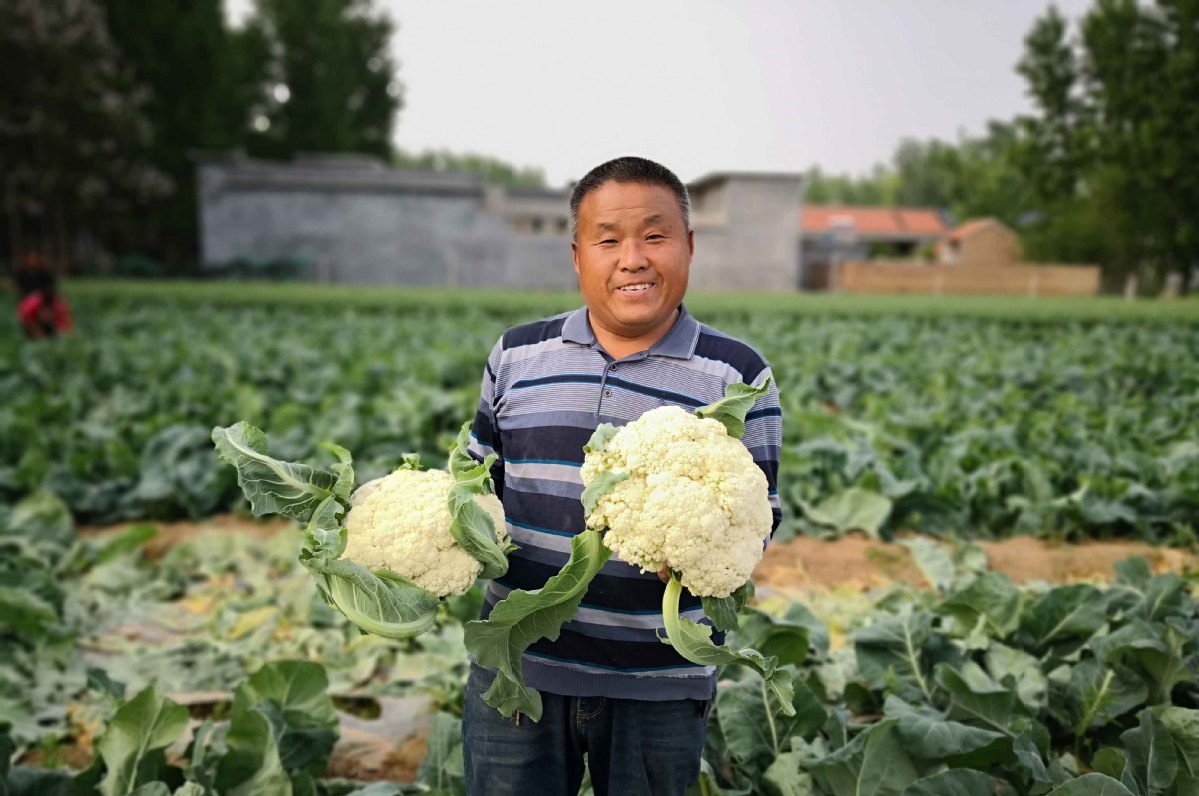Chinese seed exports to BRI countries surges
China's exports of the self-innovative, high-end seeds to the countries and regions along the Belt and Road have surged in recent years, according to the China National Seed Trade Association under the Ministry of Agriculture and Rural Affairs, at a forum of the 2019 Tianjin International Seed Expo.
China's exports of the self-innovative, high-end seeds to the countries and regions along the Belt and Road have surged in recent years, according to the China National Seed Trade Association under the Ministry of Agriculture and Rural Affairs, at a forum of the 2019 Tianjin International Seed Expo.

A farmer holds a variety of cauliflower, a research fruition of the Tianjin Academy of Agricultural Sciences. The academy's broccoli seeds have been exported to Belt and Road countries including Pakistan, India and Viet Nam. [Photo/China Daily]
A prime example is the brand new 12 varieties of broccoli, a research fruition of the Tianjin Academy of Agricultural Sciences, which have shown a sharp growth in exports, from 1,500 kilograms in 2017 to 3,500 this year.
The seeds have been exported and planted in Pakistan, India and Vietnam, reversing China's history when broccoli supplies relied on imports from overseas.
The academy has undertaken genome sequencing research on to up to 6,800 varieties of the vegetable, said Shan Xiaozheng, research head of the vegetable under the academy.
This year the academy completed the world's first genome sequencing of cauliflower, with China ranking top in global cauliflower's research.
Broccoli is a branch under the cauliflower, and the dedicated efforts in breeding the self-innovative and high-end varieties have paid off, the researcher said.
In addition, Tianjin Food Group announced dual harvest in both its domestic and Bulgaria-based projects this October.
Company insiders said that its farmlands based in the municipality of the Parvomay, Plovdiv region, Bulgaria, have seen its highest harvest in four years, and the volume of paddy rice will grow by 23% on average, to hit 500 kilograms per mu (a Chinese measurement unit), which equals 8,208 kilograms per hectare.
In the farmlands the company plants paddy rice, oilseed flower, sunflower and corn and provides professional experts to support the planting, with research support from the academy.
Cui Yehan, an official of the Development Center for Science and Technology under the Ministry of Agriculture and Rural Affairs, indicated that in recent years, Chinese companies devoted much more attention to the intellectual property right protection in advanced vegetable plantations involving great scientific and technological devotion.
Last year, the number of Chinese companies and research organs applying for the Plant Variety Protection certificates, the IPR protection certificate in the sector, with the world's authorities, hit an historic high of 4,854, he said.
Statistics from the China National Seed Trade Association indicated that China's seed exports grew by 3.28 times from 2000 to 2018, from US$132 million to US$694 million.

